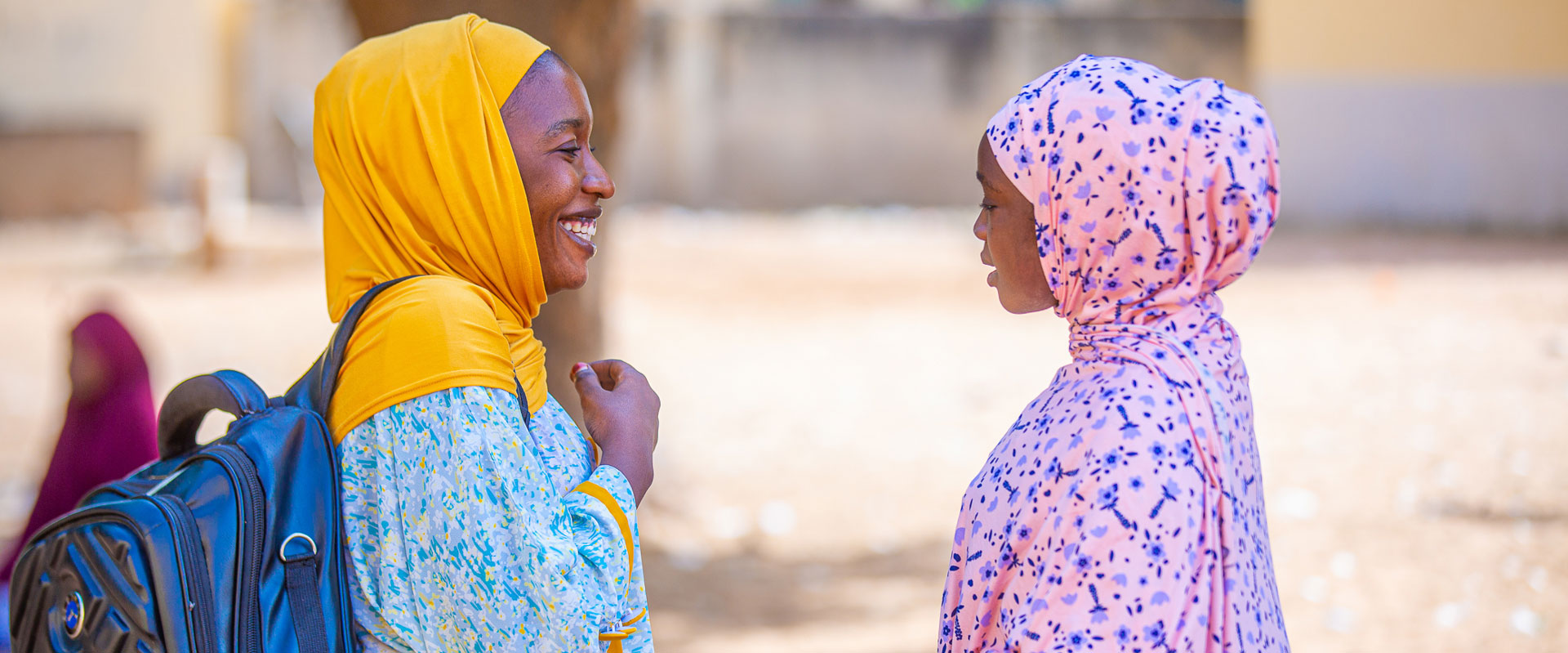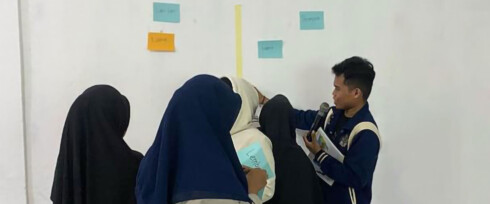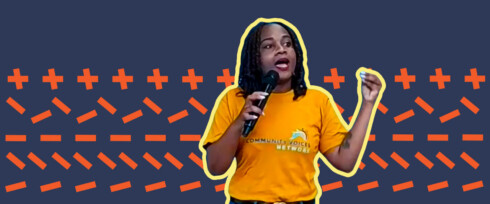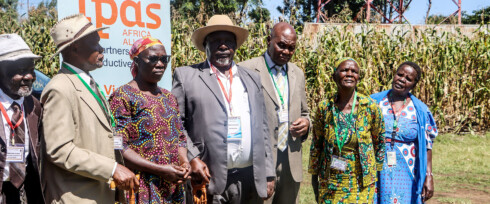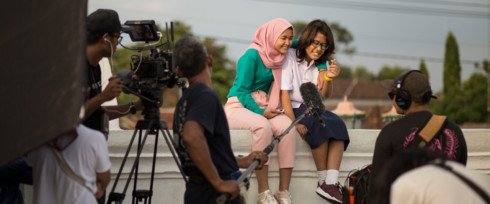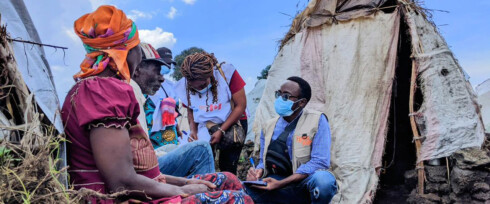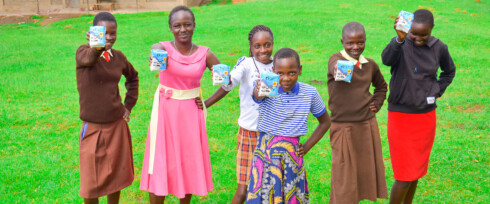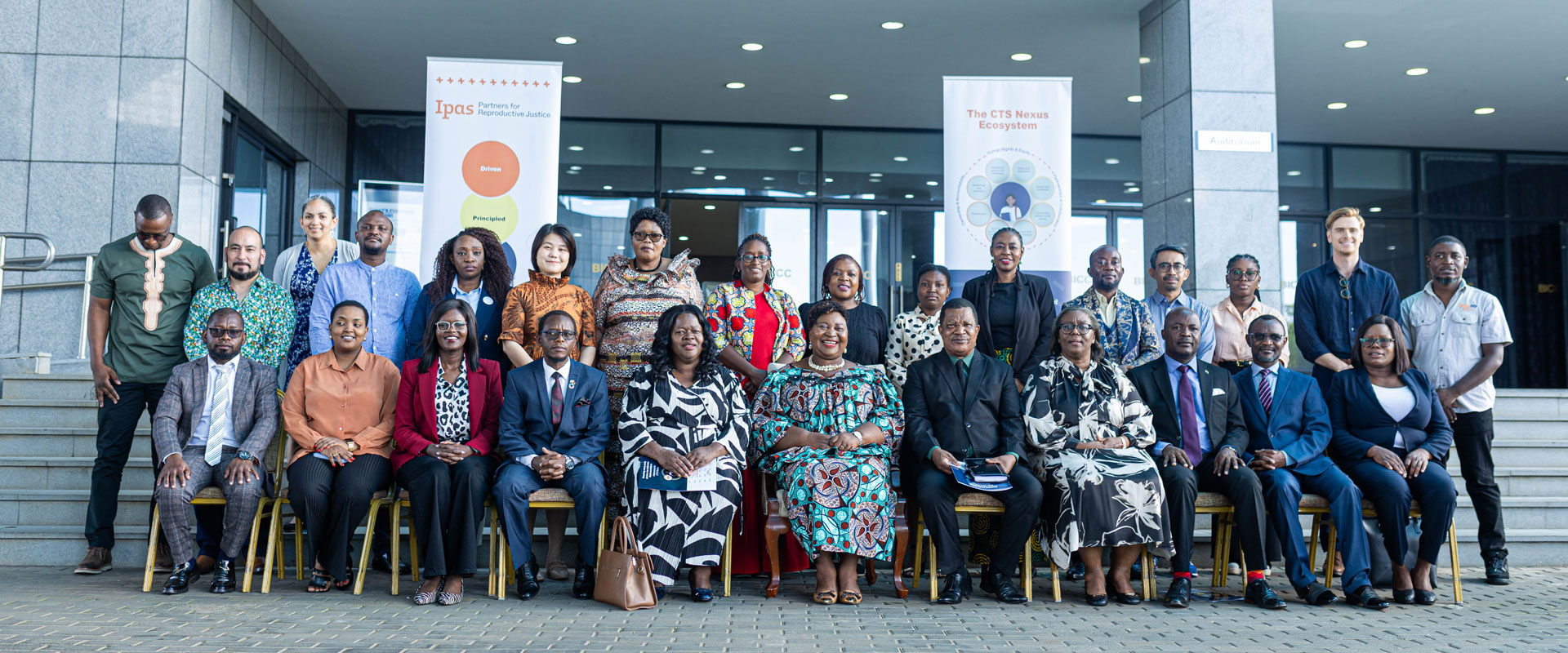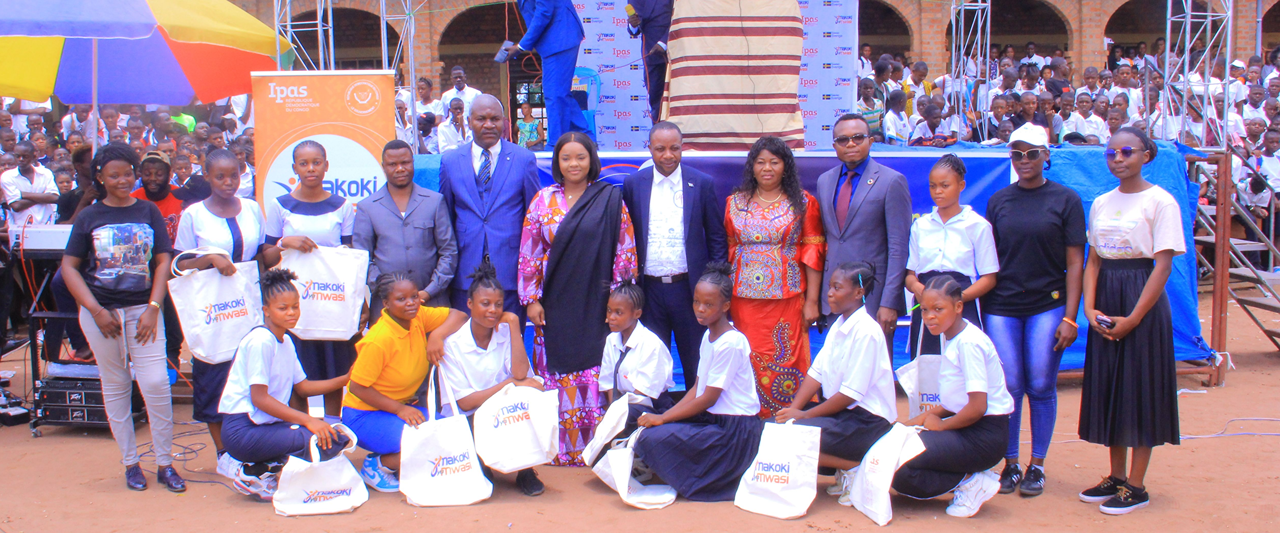Young people are powerful and effective advocates for their own health and rights—and a growing force for reproductive justice around the world.
Ipas recognizes the power of young people and works to center their voices and needs in all that we do. Young people bring passion and innovative ideas to grassroots movements for abortion access and law change, serve as highly effective peer educators on sexual and reproductive health, and are uniquely positioned to advise health systems on how to ensure youth-friendly care.
We work for a world where every young person can determine their own future and live up to their fullest potential. For this to happen, young people must have bodily autonomy and control over their own sexual and reproductive health.
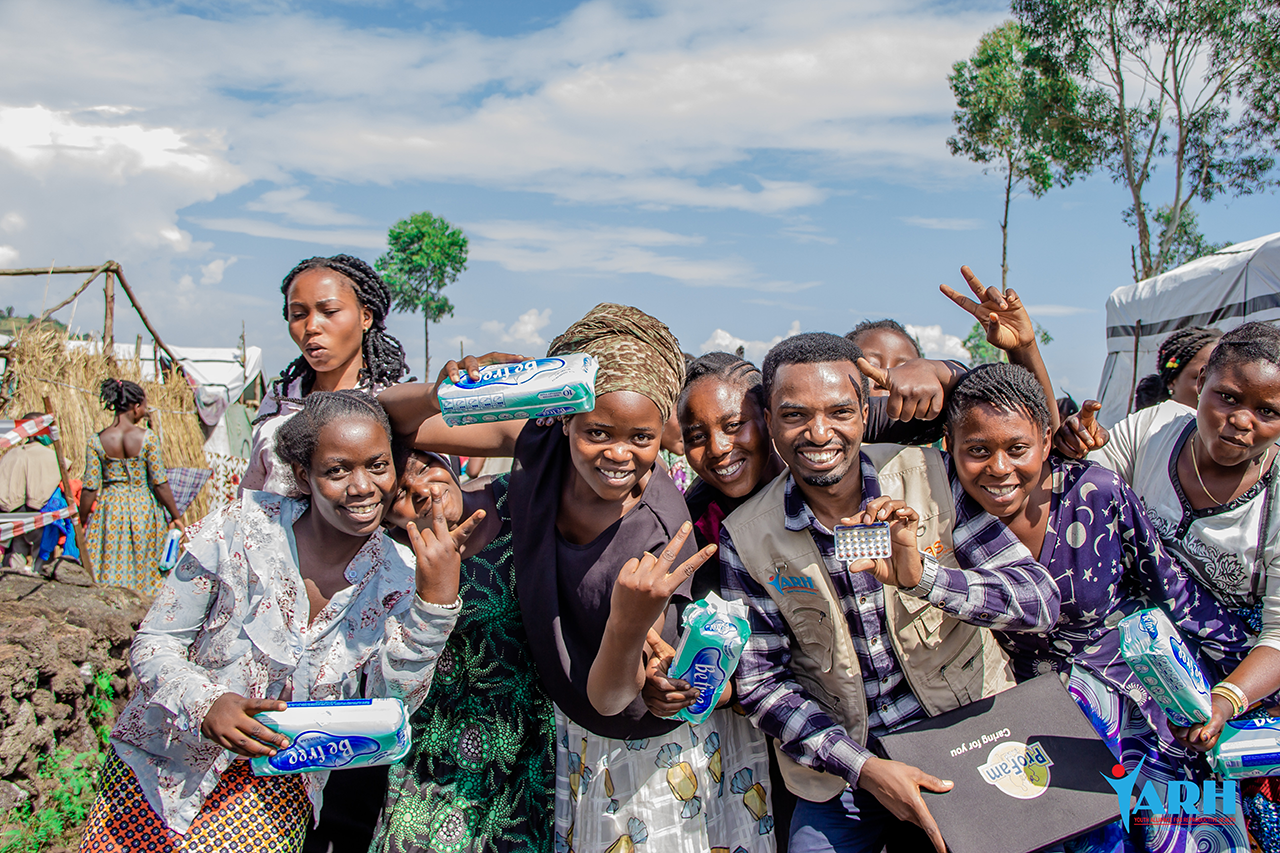
Believe in the power of young people, and you are going to see change,” says Dr. Simon Bine Mambo, coordinator for Youth Alliance for Reproductive Health, a key Ipas partner in Democratic Republic of Congo. Together, we work to improve reproductive health access in conflict zones with youth-led community outreach.
A holistic approach: Tackling the ‘CTS nexus’
All young people deserve the right to make their own informed decisions about their sexual and reproductive health. But this right is often denied due to many interrelated factors, including unintended pregnancy, child marriage, school dropout, gender-based violence, and stigma and restrictive cultural norms around youth sexuality.
To address this complex reality, Ipas develops holistic approaches that empower young people to take the lead and improve youth access to sexual and reproductive health information and care in their communities. We work with partners across all sectors of society to address the interrelated issues of child marriage, teenage pregnancy and school dropout (known as the “CTS nexus”).
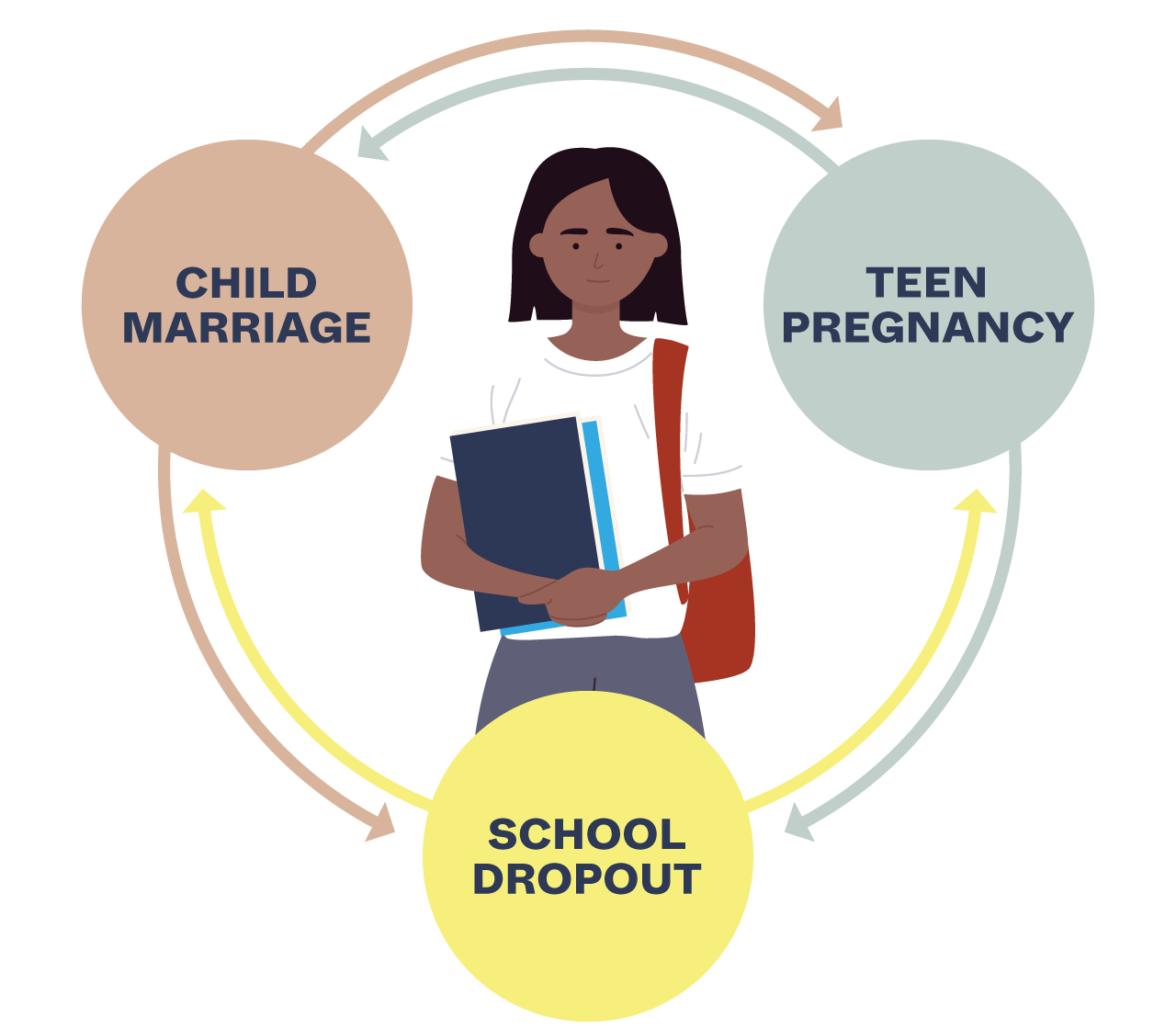
Child marriage
Child marriage is a global threat that severely limits girls’ ability to determine their own future, trapping them in poverty and vulnerability to gender-based violence. It also increases their risk of early and unwanted pregnancies, leading to more abortions by unsafe methods. And it deprives girls of education and economic opportunities, perpetuating a cycle of gender inequity.
Ipas tackles the conditions that fuel child marriage, such as gender inequity and the disproportionate impact of climate change on women and girls. Our research around the world has found an increase in child, early and forced marriages in places where climate change is harming people’s livelihoods. And our work to advance gender equity has proven that with the right information and support, men can play an important role in ensuring women’s and girls’ reproductive rights. We also advocate to prevent child marriage, for example by testifying before the Inter-American Commission on Human Rights and spurring the Bolivian government to promise action addressing the child marriage crisis in Bolivia.
Teenage pregnancy
Teenage pregnancy significantly impacts girls’ health, education, and economic prospects. Early pregnancies can pose serious health risks, including from abortion with unsafe methods, and can trap girls in unhealthy relationships. In addition, young mothers are more likely to drop out of school, limiting their future opportunities.
At Ipas, we address the root causes of teenage pregnancy, such as lack of access to comprehensive sexuality education. We advocate for policies that support young people’s reproductive rights and provide them with the information and resources they need to make informed decisions about their sexual and reproductive health. For example, with our local partner in Nigeria, we brought much-needed sexuality education to college campuses. By working with schools, communities, and digital platforms tailored for youth, we aim to reduce teenage pregnancy and support girls to stay in school and achieve their goals.
School dropout
School dropout rates for girls are alarmingly high in many parts of the world, due to factors including poverty, gender-based violence, and teenage pregnancy. Plus, stigma around youth sexuality and abortion often prevents girls from accessing the sexual and reproductive health information and care they need to stay in school. Dropping out of school has long-term consequences, perpetuating cycles of poverty and preventing girls from reaching their full potential.
Ipas works to prevent school dropout by promoting policies and programs that keep girls and young women in school. This includes work to prevent gender-based violence, reduce abortion stigma, and provide comprehensive sexuality education in partnership with governments and community organizations. We also fund local groups, such as our Kenya-based partner Entashata, that bridge education and reproductive health gaps for women and girls.
Two paths show what’s at stake
We can easily see the devastating impact of child marriage, teenage pregnancy and school dropout if we look at the very different paths through adolescence that a girl may follow depending on where she lives—and the policies and programs in place to ensure she’s in control of her own future.
Mina
Age 14
Has no access to sexuality education; does not know how to prevent pregnancy
Age 15
Forced to marry because her family struggles financially
Age 16
Has no access to contraception and becomes pregnant. Has no access to abortion.
Age 17
Has her first child and drops out of school
Future
Limited opportunities and continued financial hardship
Mary
Age 14
Has comprehensive sexuality education; knows how to prevent pregnancy
Age 15
Does not marry and stays in school, supported by community groups and cultural norms
Age 16
Safe from gender-based violence thanks to protective laws and community efforts
Age 17
Can access contraception and avoids unwanted pregnancy
Age 18
Graduates school and finds a good job
Age 25
Marries and has children when she is ready
Future
Empowered, independent, and prosperous—with improved outcomes for her children as well
Empowering youth leaders and advocates
Young people are leaders and active participants in all Ipas programs to strengthen youth sexual and reproductive health. Whether they’re running a digital platform that provides information, educating their peers, connecting community members with health care, or advocating for law reform, young people’s potential is limitless and we’re honored to partner with them. Here are just a few examples of how young people are taking the lead in our work.
“We can prevent the death of many young and adolescent women with unplanned or unwanted pregnancies,” says Alexander Huayta Lugarani, part of a group of student leaders at Public University in El Alto, Bolivia, that works to break down machismo and show young people how men can play a crucial role in supporting women’s reproductive rights—including the right to abortion.
Krishna Pingua is a youth leader in rural India who helps educate men on sexual and reproductive health—and the important role men can play in supporting women’s rights. “When I talk to other men about sexual and reproductive health, I feel very proud that through sharing my knowledge, I am giving them the right guidance,” he says.


